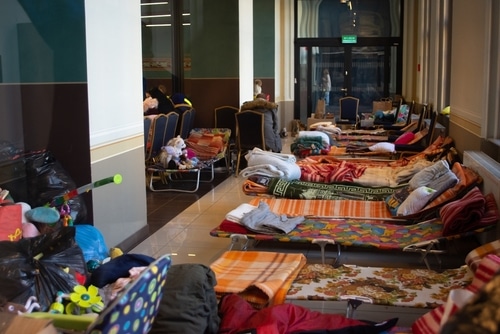New research from the University of Manchester has highlighted a critical issue regarding women’s safety in the city: the insufficient availability of women-only temporary accommodation.
In a recent article by Policy@Manchester, Isis Barei-Guyot, Dr. Alison Briggs, and Dr. Elizabeth Ackerley discuss their findings on the safety of women, including trans women, facing homelessness. They assert that women’s safety needs are being neglected in the current crisis-driven housing system, noting that women often feel unsafe in mixed-gender temporary shelters.
They continue: “Women can be placed into accommodation with men who have criminal records, such as domestic violence perpetrators and sex offenders, creating significant risks to safety. This includes women who have experienced gender-based violence, and experiences in temporary accommodation have been described as re-traumatising.”
As a consequence of the overwhelming demand for housing in Manchester, the authors explain that there is a focus on moving women on from refuges and other forms of temporary accommodation.
But they add: “It is critical that women are moved into accommodation that is appropriate for their needs. A lack of social housing results in women being pushed into the unaffordable and unregulated private rented sector, including women with complex needs for whom independent tenancies are not always suitable.”
Barei-Guyot, Briggs and Ackerley set out a series of policy recommendations from their report designed to strengthen women’s safety.
First, they advocate the development of frameworks for temporary accommodation with a minimum number of places ring fenced as gender specific places. They write: “Support services should be prioritised – local authorities and supported community interest groups should be provided with the facilities and provision needed to ensure that they can offer face to face support for women at risk of homelessness.”
Second, they endorse the view of Culture Secretary Lisa Nandy who, during her tenure as Shadow Housing Secretary, commissioned a report which called for local rents to be reviewed and rent caps in private rented sector considered. The academics argue: “The new government should now consider how this can be implemented and bring in new legislation to implement rent caps.”
Third, they call for the formulation of “trauma-informed policies and guidance on appropriate housing for women fleeing domestic abuse” by local authorities with involvement from the community and voluntary sector. Their article continues: “Practical steps that policymakers can take to ensure that these policies are developed in a way that listens to the voices of women are to establish working groups, policy forums and hold public consultations.”
And fourth, given the need for many women to access multiple services to support their safety at one time, they recommend that local authorities should place greater emphasis on increased collaboration between local services through multi-agency working. They warn: “‘One size fits all approaches’ can fail to meet the requirements of women who may have complex and diverse needs.”



